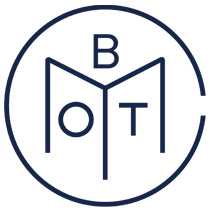The New York Times Best Seller list is widely considered the preeminent list of best-selling books in the United States. Since October 12, 1931, The New York Times Book Review has published the list weekly. In the 21st century, it has evolved into multiple lists, grouped by genre and format, including fiction and nonfiction, hardcover, paperback and electronic.

A paperback book is one with a thick paper or paperboard cover, and often held together with glue rather than stitches or staples. In contrast, hardback (hardcover) books are bound with cardboard covered with cloth, leather, paper, or plastic.

A romance novel or romantic novel is a genre fiction novel that primary focuses on the relationship and romantic love between two people, typically with an emotionally satisfying and optimistic ending. Authors who have contributed to the development of this genre include Samuel Richardson, Jane Austen, and Charlotte Brontë.

A hardcover, hard cover, or hardback book is one bound with rigid protective covers. It has a flexible, sewn spine which allows the book to lie flat on a surface when opened. Modern hardcovers may have the pages glued onto the spine in much the same way as paperbacks. Following the ISBN sequence numbers, books of this type may be identified by the abbreviation Hbk.
A bestseller is a book or other media noted for its top selling status, with bestseller lists published by newspapers, magazines, and book store chains. Some lists are broken down into classifications and specialties. An author may also be referred to as a bestseller if their work often appears in a list. Well-known bestseller lists in the U.S. are published by Publishers Weekly, USA Today, The New York Times, and IndieBound. The New York Times tracks book sales from national and independent bookstores, as well as sales from major internet retailers such as Amazon.com and Barnes & Noble.
The Crime Writers' Association (CWA) is a specialist authors' organisation in the United Kingdom, most notable for its "Dagger" awards for the best crime writing of the year, and the Diamond Dagger awarded to an author for lifetime achievement. The Association also promotes crime writing of fiction and non-fiction by holding annual competitions, publicising literary festivals and establishing links with libraries, booksellers and other writer organisations, both in the UK such as the Society of Authors, and overseas. The CWA enables members to network at its annual conference and through its regional chapters as well as through dedicated social media channels and private website. Members' events and general news items are published on the CWA website, which also features Find An Author, where CWA members are listed and information provided about themselves, their books and their awards.

Book of the Month is a United States subscription-based e-commerce service that offers a selection of five to seven new hardcover books each month to its members. Books are selected and endorsed by a panel of judges, and members choose which book they would like to receive, similar to how the club originally operated when it began in 1926. Members can also discuss the books with fellow members in an online forum.
The Literary Guild of America is a mail order book club selling low-cost editions of selected current books to its members. Established in 1927 to compete with the Book of the Month Club, it is currently owned by Bookspan. It was a way to encourage reading among the American public through curated and affordable selections.

Gay pulp fiction, or gay pulps, refers to printed works, primarily fiction, that include references to male homosexuality, specifically male gay sex, and that are cheaply produced, typically in paperback books made of wood pulp paper; lesbian pulp fiction is similar work about women. Michael Bronski, the editor of an anthology of gay pulp writing, notes in his introduction, "Gay pulp is not an exact term, and it is used somewhat loosely to refer to a variety of books that had very different origins and markets". People often use the term to refer to the "classic" gay pulps that were produced before about 1970, but it may also be used to refer to the gay erotica or pornography in paperback book or digest magazine form produced since that date.

A text publication society is a learned society which publishes scholarly editions of old works of historical or literary interest, or archival documents. In addition to full texts, a text publication society may publish translations, calendars and indexes.

A circulating library lent books to subscribers, and was first and foremost a business venture. The intention was to profit from lending books to the public for a fee.

Junior Library Guild, formerly the Junior Literary Guild, is a commercial book club devoted to juvenile literature. It was created in 1929 as one of the enterprises of the Literary Guild, an adult book club created in 1927 by Samuel W. Craig and Harold K. Guinzburg. Book clubs often marketed books to libraries as well, and by the 1950s the majority of the Junior Literary Guild's sales were to libraries. In 1988, the name was changed to the Junior Library Guild to reflect this change in the company's business.

Soulless is a steampunk paranormal romance novel by Gail Carriger. First published in the United States on October 1, 2009 by Orbit Books, Soulless is the first book in the five-novel "The Parasol Protectorate" series, each featuring Alexia Tarabotti, a woman without a soul, as its lead character. A finalist for several literary awards and a recipient of the 2010 Alex Award, Soulless was declared by Publishers Weekly to be one of the "Best Books of 2009". A manga adaptation of the first 3 volumes of the novel was published by Yen Press in July 2011.

The Litigators is a 2011 legal thriller novel by John Grisham, his 25th fiction novel overall. The Litigators is about a two-partner Chicago law firm attempting to strike it rich in a class action lawsuit over a cholesterol reduction drug by a major pharmaceutical drug company. The protagonist is a Harvard Law School grad big law firm burnout who stumbles upon the boutique and joins it only to find himself litigating against his old law firm in this case. The book is regarded as more humorous than most of Grisham's prior novels.

The following outline is provided as an overview of and topical guide to books:

Edward Vernon Utterson was a British lawyer, literary antiquary, collector and editor. He was a fellow of the Society of Antiquaries, one of the original members of the Roxburghe Club, a member of the Athenaeum Club, Camden Society and Royal Society of Arts, Recorder of Chichester and a Trustee of the Royal Victoria Yacht Club. He went on to become one of the Six Clerks in Chancery, a position which he kept until his retirement on the abolition of the post in 1842, and also founded the Beldornie Press.
The Jucklins is an 1896 novel by Opie Read. It was a best selling book in the United States, though it never appeared on the best-sellers list in The Bookman since its early and primary sales were of cheap paperback copies sold on trains and at newsstands.

David Wadsworth Ball is an American author whose novels include Empires of Sand (1999), China Run (2002) and Ironfire (2004). His short story, The Scroll, was published in Warriors (2010), and Warriors 2 (2010), anthologies assembled by George R.R. Martin and Gardner Dozois. The short story Provenance was included in an anthology entitled Rogues, published by Bantam Spectra in 2014.
As of 2018, several firms in the United States rank among the world's biggest publishers of books in terms of revenue: Cengage Learning, HarperCollins, Houghton Mifflin Harcourt, McGraw-Hill Education, Scholastic, Simon & Schuster, and Wiley.












